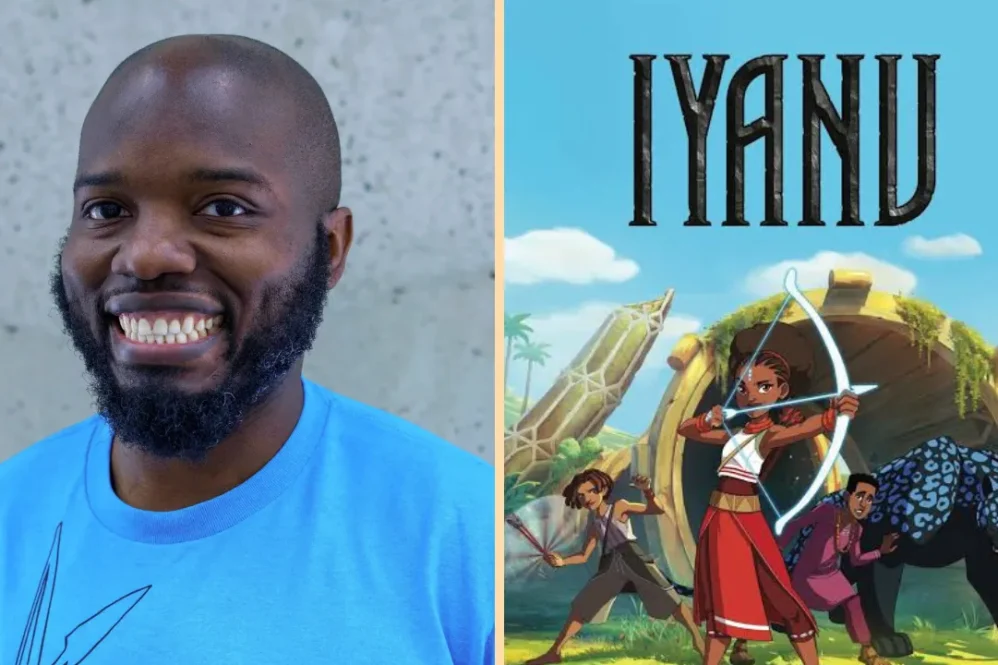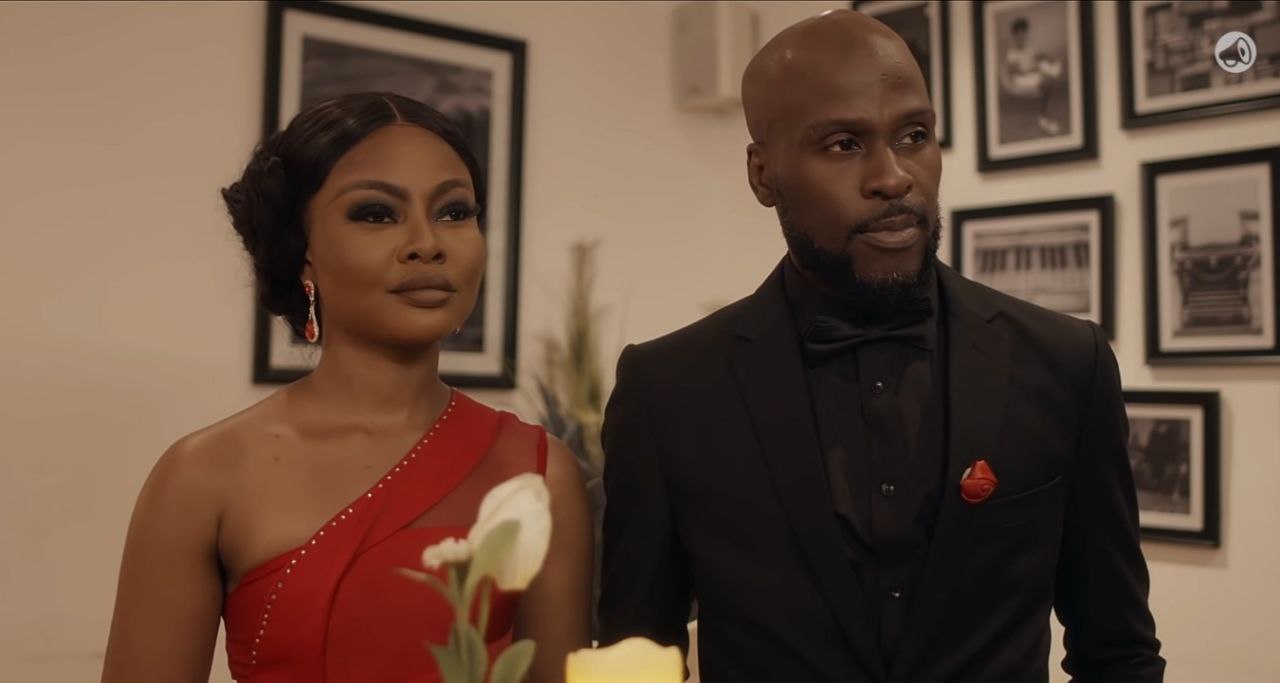2023 marked the beginning of a trilogy of epic moments in the African animation industry. It kicked off with Kizazi Moto, a collaboration between Disney and South Africa’s Triggerfish Animation Studio. This was followed in 2024 by Iwájú, a futuristic, Lagos-set series created by Disney and pan-African outfit Kugali Media. Now in 2025, the trend continues with Iyanu, an animated series rooted in West African mythology.
And when something happens three times, it establishes a pattern. Collaborations with international partners are here to stay in African animation.
Iyanu was adapted and produced by U.S.-based Lion Forge Entertainment and YouNeek Studios. It is based on the graphic novel Iyanu: Child of Wonder, created and written by Roye Okupe, a Nigerian-born author, filmmaker, and founder of YouNeek Studios. The animated series is a direct outcome of a 20-book publishing deal between YouNeek Studios and Dark Horse Comics.
What many people don’t know is that Roye Okupe has been working on the Iyanu animated series with Lion Forge for five years. In his own words, it’s been a long road, one that began with a dream on Kickstarter and has now led to Iyanu airing on Cartoon Network. It’s a full-circle moment.
This journey is more than just professional success; it’s deeply personal. Roye is now living a dream that his late father supported from the very beginning, at a time when most Nigerian dads would have discouraged their sons from pursuing a career in the creative industry.
For Roye, everything he has created in the creative industry is a tribute to his late father, the one man who believed in him right from the cradle. His father’s unwavering faith lit the spark that fuelled Roye’s own belief that he could make it.

But Iyanu is more than just a tribute to the past, it’s also a love letter to the future. Specifically, to his daughter. “We as kids had a lot of fun watching Saturday morning cartoons. So I just want kids to have fun,” Roye shared nostalgically during a roundtable with media houses in April. “It’s a very tough world we live in; they grow up so fast. I want kids to have fun.”
Like many young boys who were geeks growing up in Lagos in the ’80s, Roye Okupe was a huge fan of the popular action, adventure, and sci-fi comic books and animated series of the time, such as Voltron, Transformers, MASK, and more. These childhood favourites became the influences that stirred up his inspiration to create IYANU.
Looking back, Roye remains deeply grateful to Dave Stewart II, founder of Lion Forge Entertainment and executive producer of Iyanu, for his unwavering support in bringing the project to life. A fellow geek and kindred spirit, Dave believed in Iyanu from the start, offering financial support and, more importantly, trusting Roye with a leadership role behind the scenes. At a time when Diversity and Inclusion often amount to little more than rhetoric, Dave’s actions spoke volumes, allowing Roye’s vision to flourish.

Their collaboration on Iyanu was built on years of working together on smaller projects. What ultimately drew Dave to produce Iyanu was the allure of translating the story from page to screen through animation. For him, animation—especially 2D—offered a more expressive canvas, particularly for a character like Iyanu and her fantastical powers.
Dave also admitted that the temptation to take the One Piece route with a live-action adaptation was always present. However, not every comic book translation to live action hits the mark. In contrast, animation, particularly 2D, offers far more creative flexibility and freedom. It also comes with the added advantage of being more financially economical. These reasons ultimately informed Dave’s decision to produce Iyanu as an animated series.
Dave further explained that the team was drawn to the heart of the story in the Iyanu graphic novel and wanted to ensure that its essence was faithfully translated to screen. Roye played a crucial role in maintaining that authenticity, always guiding the team on what felt true to the story and what didn’t. “That’s why the collaboration worked so well,” Dave said. “We all got around it with a single vision, and Roye, being the creator, was that singular vision.”

In a world where it’s rare to find animated series created by Africans that explore the mythologies of African countries, Iyanu marks a welcome development. Dave believes the series provides a chance for audiences to see themselves reflected in the concept and to learn something meaningful about Nigerian culture along the way.
Still reflective, Roye sees the birth of Iyanu as nothing short of a miracle; to tell a story of such depth and cultural significance, on this scale, is a rare feat. Iyanu is a tale of empathy, collaboration, and forgiveness, woven through a rich tapestry of Yoruba and West African mythology, drawing from the Ashanti culture of Ghana and even elements of Berber heritage from North Africa. As Roye puts it, “lots of people pitch stories on a daily basis, but only a minute fraction of these stories eventually get greenlit and developed to the final stage.”
As an executive, Dave believes that one of the biggest challenges in bringing a project like Iyanu to life is finding the right partner, especially a distribution partner, who’s willing to go the distance with you. He and Roye have been on this journey together for nearly a decade, from the concept stage to the screen. Roye acknowledges that most people will never truly grasp the time, effort, and resources Dave has invested, not just in making the show visually stunning, but also in ensuring it reaches the right audience. “You can have a beautiful show, but if nobody hears about it, nothing is going to be done about it,” he says.
One of the most exciting moments for Roye on the Iyanu project was making subtle deviations from the original comic book. While he sees the comic medium as a powerful and artistic way to absorb stories, especially in the way panels are arranged, animation brought an entirely new dimension. With characters now moving, speaking, jumping, running, accompanied by effects and music, the story took on a whole new dimension. Though the series remains faithful to the graphic novel, Roye notes that “the sum of these subtle deviations helped shape the animated series into being its own thing.”
For example, Capoeira was a major fighting style featured in the Iyanu graphic novel. When adapting it for the screen, Roye was determined to elevate the fight and action sequences while staying true to the art form, particularly Capoeira’s distinctive fluidity. Interestingly, while many believe Capoeira originated in Brazil, it actually has its roots in Angola, making it an especially fitting choice for Iyanu. Alongside it, the team also incorporated Dambe boxing, a traditional martial art from Northern Nigeria. Bringing both to life through animation was a challenge, but also a fun experience.

Roye believes that to fully experience Iyanu, audiences should start by reading the first four volumes of the graphic novel before diving into the animated series. And when it comes to the show’s success, ratings matter. He emphasises the importance of viewers tuning in on platforms like Cartoon Network, Max, Showmax, and ITV. “It is the ratings from this show that will determine not only how much more Iyanu we’ll see made,” he explains, “but how much more of the YouNeek Universe we’ll get to explore”—whether that’s Malaika, EXO, or WindMaker.
As a love letter to his daughter, Roye hopes that Iyanu inspires children through its characters, from Iyanu, Biyi, Toye, to even Ekun. Each of them is special in their own way, doing extraordinary things while putting the needs of others before their own. He wants kids to see how these characters engage with their world and bring positive light, so they too can step into the real world and spread their light through their God-given gifts.
IYANU’s voice cast includes Serah Johnson, Okey Jude, Samuel Kugbiyi, Adesua Etomi-Wellington, Blossom Chukwujekwu, Stella Damasus, Shaffy Bello, and Ike Ononye, debuting on Showmax in 44 countries in Africa on June 13.
It arrives on ITVX this summer in the UK and Ireland. The series has been renewed for a second season and has landed two spinoff movies.
Become a patron: To support our in-depth and critical coverage—become a Patron today!
Join the conversation: Share your thoughts in the comments section or on our social media accounts.
Track Upcoming Films: Keep track of upcoming films and TV shows on your Google calendar.




